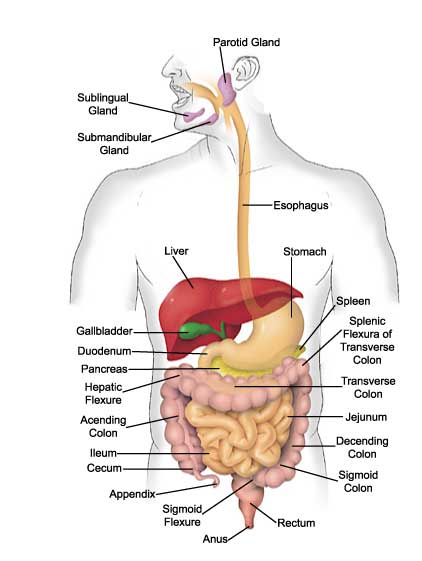Topic: Evaluate the importance of various technologies, including Canadian contributions, to our understanding of internal body systems (digestive, circulatory or respiratory).
Technology is very important in our society, because technology can save many lives! With technology, scientists and doctors are able to access new areas of internal organs that have not previously been examined without open surgery. Technology can help health by just simply using your cell phone to call your doctor to complicated machines which helps cure patients.
Procedures that involve the heart are always dangerous for the patient and are very risky, but with the use of technology, it improves the visualization of the area and can increase the accuracy of the placements. Endoscopic Ultrasound can be used to visualize the heart and help guide interventions which help increase the success rate of the surgery. Endoscopic ultrasound (EUS) is frequently performed with a scope to visualize and detect abnormalities in the digestive system.
The human vascular system is a very important system in which problems in the system can result serious health problems. Endoscopic ultrasonography is the practice of using an ultrasound transducer at the tip of an endoscope to visualize and offer therapeutic intervention to the gastrointestinal tract and its surrounding structures. Capsule endoscopy is when a patient swallows a small camera that records images of the intestinal tract. This can be used to observe and examine the intestines and other areas in the digestive system. Another way of examining the digestive system is with double balloon enteroscopy in which doctors use a scope fitted with two balloons to navigate the entire small bowel. When inflated with air, the balloons can expand sections of the small intestine to allow the camera a closer examination.
Computer programs are still very important and useful in medical settings while researchers are looking for new ways to use technology to increase the effectiveness and accuracy of surgeries. Scientists monitor and deliver sedation during surgery with computer assisted personalized sedation (CAPS), which uses computer software to ease precise control of drug delivery.
Technology is surely growing with the amount of donations and investment given to medical research as stated in this article. (http://www.healthzone.ca/health/article/597299) It seems to be the modernized way to handle health issues nowadays. Although, doctors still have to know how to treat patients without technology, many are relying on technology to help the surgeries have an increase in success. In my opinion, the money invested on technology for health care is worth it since, it saves many lives!
Sources:
http://carleton.ca/Capital_News/02112007/n6.shtml
http://www.vitallywell.net/images/digestive-system-diagram.jpg
http://www.eurekalert.org/pub_releases/2006-05/aga-ngt051906.php
http://www.healthzone.ca/health/article/597299
Commented On:
http://michael15ansell.blogspot.com/2010/05/technology-future-of-health-care.html
http://xianhe-blog.blogspot.com/2010/03/recent-technological-discovery.html
Monday, May 31, 2010
Artificial Selection
Blog Topic: Artificial selection has resulted in plants that are more disease-resistant, cows that produce more milk, and racehorses that run faster. One must wonder what will come next. In the blog entry answer the following question - under what circumstances should humans be artificially selecting plants or animals, if any?
The concept of artificial selection is becoming more and more common in today’s society. Artificial selection is the process of modifying a species by human intervention to ensure certain desirable qualities are represented in successive generations. By breeding the best with the best, it implies that the offspring will have superior desirable qualities. Breeders of animals and plants in the world are searching to produce organisms that process desirable characteristics, such as high growth rates, resistance to disease and other characteristics that will benefit the organism in the long run. The concept of natural selection refers to the process in nature, according to Darwin’s theory of evolution, only the organisms best adapted to their environment tend to survive and transmit their genetic characteristics in increasing numbers to succeeding generations while those less adapted tend to be eliminated. With artificial selection, we could ensure that these organisms will be able to adapt to their environment and survive. However, will this “artificial selection” disrupt the balance of nature?
Through artificial selection, breeders have the ability change the characteristics of animals by selecting for reproduction those individuals with the most desirable qualities. Through artificial selection, we can produce healthier, stronger animals that can yield more milk, meat and eggs for example. In this case, we don’t have to worry about the abundance of food supply. For the animals, we understand that only species that have qualities better adjusted to the natural environment can live longer. These organisms will usually have better ability to find or store food, or are more able to escape their predators. Thus, these organisms have more chance to mate and give birth to more and healthier off-spring. We can produce animals that better suit to survive in poor climates or marginal conditions, thus preserving human food supplies and saving life. With artificial selection, we can also ensure the annihilation of hereditary sickness in some blood lines. Here is no doubt that artificial selection is very useful and has great advantages.
Artificial sounds like a great idea, but it still has its disadvantages. Some people argue that it is inhumane, can cause mutations or produce new problems. An example of the inhumane process is the new way of breeding chickens. A few years back, there was an experiment where chickens are produced without feathers. Feather-free chickens will suffer more than normal birds, for instance, males can’t mate because they cannot flap their wings or they become more vulnerable to sunburn and parasites. After all, we are producing plants and animas with the traits that we want. Is it ethically right to selective for what we want or are we affecting the natural ability of species being able to reproduce? What other problems may arise if we keep inbreeding these animals?
Breeding animals and plants to create new varieties and improve upon old ones has its advantages and disadvantages. In my opinion, I believe that artificial selection seems to be a good idea. In order to breed animals and plants successfully it is important to understand the principles of reproduction. Many problems might spring up during the process of artificial selection, but we can produce plants that are resistant to various environmental problems.
Sources:
http://library.thinkquest.org/C0118084/Gene/Genetic_variation/artificialselection.htm
http://www.biology-online.org/2/12_selective_breeding.htm
http://www.ncbi.nlm.nih.gov/pmc/articles/PMC1569519/
Commented On:
http://yurisbioblog.blogspot.com/2009/12/artificial-selection.html?showComment=1275293660796_AIe9_BEbK15-ovGUhaKoLy2PS9H0FYcLQo6zGGvQ6SXBGJNtnF0FPkx2fUSXbhNpewsh7SUQ4NgEJoiMFQC1f3btz24EKm1G3B9BZ9ZYDDQf7sZEVsuPYpHpxUcCp1tgtd6tc3k3bMAk0k7hn04zCboKodb1X38S-QuUwR86ONqlMRmMknwRmkdW3-DnZ5pPHA8O-001cCTsh42BlPBhLjZPNjFJHAowkS0H2VeHMvzhBhLzj3jKGoo#c4343835383107071350
http://girgisbioblog.blogspot.com/2010/05/artificial-selection.html
The concept of artificial selection is becoming more and more common in today’s society. Artificial selection is the process of modifying a species by human intervention to ensure certain desirable qualities are represented in successive generations. By breeding the best with the best, it implies that the offspring will have superior desirable qualities. Breeders of animals and plants in the world are searching to produce organisms that process desirable characteristics, such as high growth rates, resistance to disease and other characteristics that will benefit the organism in the long run. The concept of natural selection refers to the process in nature, according to Darwin’s theory of evolution, only the organisms best adapted to their environment tend to survive and transmit their genetic characteristics in increasing numbers to succeeding generations while those less adapted tend to be eliminated. With artificial selection, we could ensure that these organisms will be able to adapt to their environment and survive. However, will this “artificial selection” disrupt the balance of nature?
For many centuries, we have been taking advantage of artificial selection. Our ancestors learned that saving seeds from the plants they wanted to continue growing would increase the chances of getting a plant similar to the original plant. They didn’t understand the process by which traits were changed or maintained, or the laws of heredity. Today, we learned much about plant reproduction and we are able to select plants for breeding with considerably more assurance of success. Many people believe that breeding new crops is important for ensuring food security by developing new varieties that are higher-yielding, resistant to pests and diseases, drought-resistant or regionally adapted to different environments and growing conditions. Many of the food that we consume are products of plant breeding. However, some people are concerned whether breeding can have a negative effect on nutrition value. There are scientific indications that, by favouring certain aspects of a plant's development, other aspects may be retarded. I personally have many questions about plant breeding, including how can we ensure that the product is edible? I don’t want to end up eating plants that I should not be eating! Most countries have regulatory processes in place to help ensure that new crop varieties entering the marketplace are both safe and meet farmers' needs.
Animal breeding requires selecting animals with superior abilities in growth rate, egg, meat, milk, wool production or have other desirable traits that will revolutionize agricultural livestock production. Some animal breeders believe in purebred, which is mating animals of the same bred for maintaining stable characteristics or traits that the parents will pass to the next generation. Does this still count towards helping animals better survive in their environment?
Artificial sounds like a great idea, but it still has its disadvantages. Some people argue that it is inhumane, can cause mutations or produce new problems. An example of the inhumane process is the new way of breeding chickens. A few years back, there was an experiment where chickens are produced without feathers. Feather-free chickens will suffer more than normal birds, for instance, males can’t mate because they cannot flap their wings or they become more vulnerable to sunburn and parasites. After all, we are producing plants and animas with the traits that we want. Is it ethically right to selective for what we want or are we affecting the natural ability of species being able to reproduce? What other problems may arise if we keep inbreeding these animals?
Breeding animals and plants to create new varieties and improve upon old ones has its advantages and disadvantages. In my opinion, I believe that artificial selection seems to be a good idea. In order to breed animals and plants successfully it is important to understand the principles of reproduction. Many problems might spring up during the process of artificial selection, but we can produce plants that are resistant to various environmental problems.
Sources:
http://library.thinkquest.org/C0118084/Gene/Genetic_variation/artificialselection.htm
http://www.biology-online.org/2/12_selective_breeding.htm
http://www.ncbi.nlm.nih.gov/pmc/articles/PMC1569519/
Commented On:
http://yurisbioblog.blogspot.com/2009/12/artificial-selection.html?showComment=1275293660796_AIe9_BEbK15-ovGUhaKoLy2PS9H0FYcLQo6zGGvQ6SXBGJNtnF0FPkx2fUSXbhNpewsh7SUQ4NgEJoiMFQC1f3btz24EKm1G3B9BZ9ZYDDQf7sZEVsuPYpHpxUcCp1tgtd6tc3k3bMAk0k7hn04zCboKodb1X38S-QuUwR86ONqlMRmMknwRmkdW3-DnZ5pPHA8O-001cCTsh42BlPBhLjZPNjFJHAowkS0H2VeHMvzhBhLzj3jKGoo#c4343835383107071350
http://girgisbioblog.blogspot.com/2010/05/artificial-selection.html
Subscribe to:
Comments (Atom)





